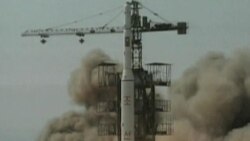For the fourth time since 2006, North Korea has tested a nuclear bomb. Although international observers have not confirmed the device was what North Korea claims it to have been–-a miniaturized hydrogen bomb -- White House Spokesperson said any kind of nuclear test by North Korea was “provocative and a flagrant violation” of multiple U.N. Security Council resolutions.
Countries around the world, including the United States, China and Russia, condemned the test and an emergency session of the United Nations Security Council was called. The Security Council also strongly condemned it, calling the nuclear test by North Korea “a clear threat to international peace and security” and pledging “to begin to work immediately” on “further significant measures” to address the situation.
U.S. State Department Spokesperson John Kirby said, “The international community must impose real consequences for the regime’s destabilizing behavior and respond with enhanced pressure. The Security Council has a key role to play in holding North Korea accountable by imposing a tough, comprehensive, and credible package of new sanctions, and by ensuring rigorous enforcement of the resolutions it has already adopted.”
Secretary of State John Kerry spoke with his counterparts both in the region and elsewhere over North Korea’s nuclear test. He emphasized the need for an international response to the threat posed by North Korea and pledged to continue to protect our allies in the region, including the Republic of Korea and Japan.
U.S. Permanent Representative to the United Nations Samantha Power said in a statement that “North Korea has increasingly isolated itself and impoverished its people through its reckless pursuit of weapons of mass destruction. The United States remains fully committed to the peaceful denuclearization of the Korean Peninsula,” said Ambassador Power. “We will take all actions necessary to protect our security, defend our allies, and promote regional stability.”






